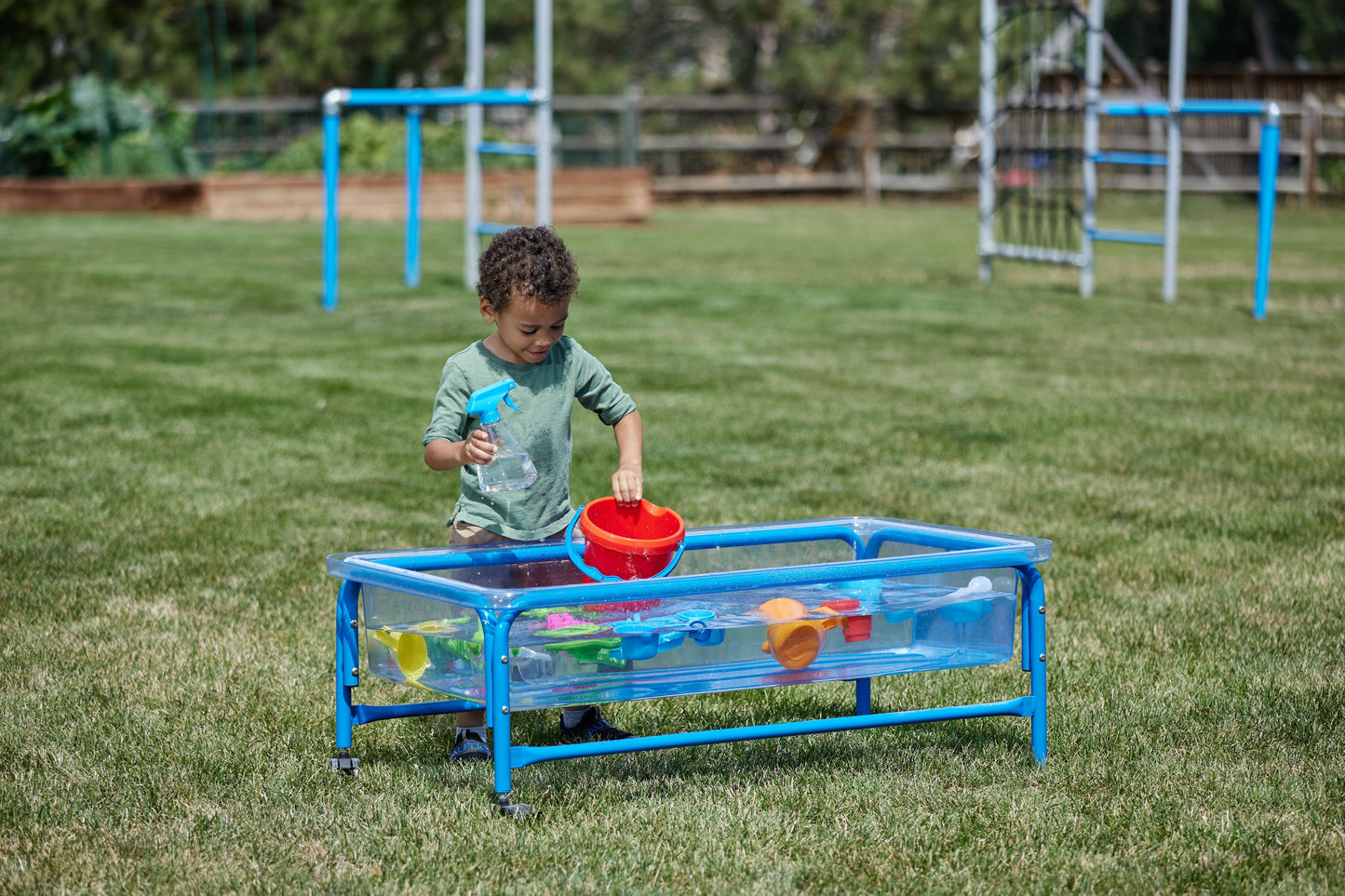
The Benefits of Sensory Play for Children with Autism
Children with autism spectrum disorder (ASD) face an array of challenges depending on their diagnosis, which can include difficulty communicating, interacting and learning. Sensory integration is one of the most important skills for those with autism to learn because it helps them to better understand their environment and become more aware of their emotions.
We all love to play and learn – engaging children with autism in the right play can stimulate their brain, creating neural pathways and improving their sensory processing systems. It can improve many core skills such as social skills communication, cooperation and improve coordination including hand-eye coordination, and fine / gross motor skills.
Messy and sensory play for autism can help children remain calm, de-stress and divert or engage their focus, as well as provide the sensory experience they need. Not all children love messy play and will require you to adapt at times.
Sensory toys are gaining attention as many parents and therapists are reporting positive results – while these toys have been around for a while, they have never been so popular. This will help them engage with their senses, provide feedback to their sensory systems, and regulate their sensory needs.
Sensory toys help autism by:
- Reducing stress levels
- Improving self-awareness
- Refining gross motor skills and fine motor skills
- Learning cause and effect
- Improving communication skills
- Developing social skill
- Increasing self-confidence
Sensory or messy toys generally stimulate the child senses, providing sensory input, which is necessary for the brain to process information. The benefits of sensory and messy activities are naturally important for all children, not just those that have been diagnosed or display indications of autism.
At first, try an activity for just one of the five senses – touch, smell, taste, sight or hearing. Go gently and evaluate what sensory stimulation works well, and what should be avoided. Then add in more experiences as you go. Be mindful that children are drawn to putting things into their mouths, so you need to make sure all objects they are given are non-toxic and safe.
TOUCH: Feeling different textures is good for stimulating brain development as well as helping children get used to different sensations. Try cornflour slime with our Translucent Counters, sand with our Dinosaur Counters. If it is water your child loves, get them car washing a toy in the garden, or why not try our Sensory Ocean idea using Aquatic Counters and water beads, it is a great sensory play activity for all ages.
SMELL: Experiment with making scented play dough with different natural flavourings from the kitchen cupboard, taking into consideration any allergies of course. Add mint, vanilla, ginger spices, almond oil, mild curry powders or whatever takes your fancy! Kids can have fun comparing smells, whilst rolling out the playdough and making shapes, or making patterns with Tactile Shells, as the aroma wafts up stimulating the senses.
TASTE: One of our favourite messy play activities for kids is as simple as cereal in a bowl with some of our counters to discover. Or you can taste test fruit and talk about the texture, how does it taste, is it soft, hard, for example, mango vs apple.
SIGHT: A great way to provide sensory sight play is to use lights make a den with a sheet over the kitchen table, make sure it is dark. Get a few torches and coloured materials to make the area colourful by using the different materials. Alternatively use the translucent linking cubes and shine a light through them to see it projected on the wall.
SOUND: Homemade musical instruments are a great addition to any home and are fun to make. Ideas include making shakers from filled clear bottles with rice or dried beans, drums from plastic tubs and wooden spoons to bash, and chimes where you hang up some bottle tops or shells.
Choose a time to play where you are able to join in because playing together with your child means you can look for ways to enhance or extend their play.
Remember the best sensory toys are already in your home just look around. Bubbles are great for children with autism and sensory issues because they are soothing. Water play is also great for kids with sensory issues; just fill your bath tub or sink with warm water and a few drops of dish soap. Let the bubble fun begin!
Water is a great sensory activity and stress reliever. Make homemade play dough, which can be used as a fun and relaxing activity. Or, you can make some homemade sensory bottles and grab a few of your child’s favourite things, such as beads, rocks, and even objects from nature, such as leaves and tree branches, and place them in the bottle.
Remember that sensory activities will have positive benefits for children in your care, not just those diagnosed with (or displaying indications of) ASD. Most of all, have fun!
To celebrate World Autism Acceptance Week we have a discount code TQA15 to use on the www.shopedx.co.uk valid from 27th March - 15th April
By Heather Welch, Brand Manager, Edx Education
